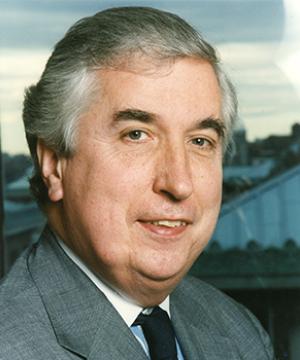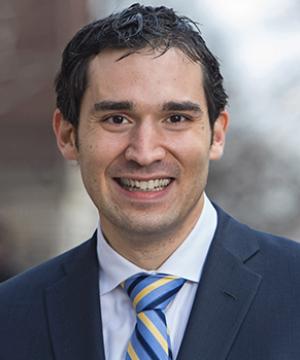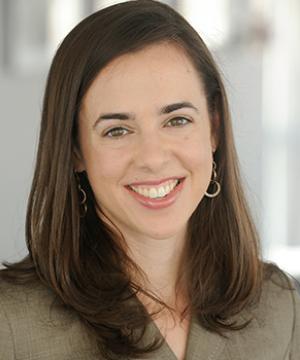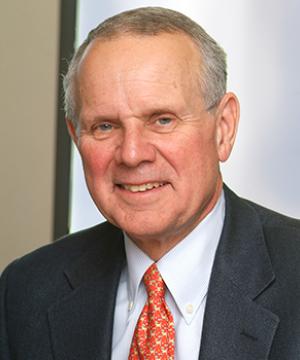Keeping an Eye Out for Future Financial Turbulence
Before 2008, phrases like asset-backed securities and credit default swaps were seldom heard beyond Wall Street—until they made daily headlines as the leading causes of a global financial crisis. Columbia Law School faculty whose scholarship focuses on business and finance are examining issues that could, like the dreaded default swaps, transform from benign to critical.
All the issues these legal scholars raise have cropped up since or as a result of the 2008 crisis and the evolving financial market structure and regulatory regime that has emerged.
Dual-Class Stocks: Is Forever Too Long?
Professor John C. Coffee Jr., the Adolf A. Berle Professor of Law and director of Columbia Law’s Center on Corporate Governance, describes the debate over dual-class stocks as the most important issue facing corporate governance experts. A company can be hobbled by having voting control in the hands of an incompetent or self-interested chairman, he says, citing Viacom’s legal wrangles due to health questions about controlling shareholder Sumner Redstone, age 95. At the same time, the inability to maintain control of a wildly successful startup could keep the founders of these so-called unicorns from going public at all. Dual-class IPOs aren’t likely to go away “as long as we have activist hedge funds,” Coffee says, so the question of the length of voting control is also going to continue.
Nonetheless, the Council of Institutional Investors has asked the New York Stock Exchange and Nasdaq to require a sunset provision for dual-class stocks: After a set period of time, the voting shares would be converted into ordinary one-share-one-vote stock.
Coffee says dual-class stock company founders should be compensated when their voting control ends, through mechanisms yet to be negotiated. “There have to be some compromises,” he says. But there should be an expiration date for voting control. “Forever is a little bit too long,” Coffee says. “There should be a point where, as a public company, you have to listen to shareholders.”
What’s good for democracy is good for public companies, Coffee says: “What would have happened if, in 2016, we had elected Donald Trump el presidente for life?”
Guarantor of Last Resort: Safety Net or Carte Blanche?
That’s what the U.S. Treasury Department should do, Judge argues, the next time a systemic meltdown on the order of the 2008 financial crisis appears imminent. In a Washington Post op-ed and an upcoming Texas Law Review article, Judge proposes giving the Treasury secretary the power to temporarily guarantee any financial claim—that is, the government could promise to protect investors against losses suffered in a particular investment like it does with deposit insurance. Like the money market mutual funds the Treasury guaranteed in 2008, such emergency guarantee authority would stabilize a rocky financial system and give time for Congress or regulators to take considered action—time they didn’t have in 2008, Judge says. The guarantees would be time limited, would have to meet a threshold of severity, and would require robust reporting in order to discern the nature of the systemic threat and how to address it.
Guarantees “are just remarkable when it comes to stabilization,” Judge says, because they can “stop the bleeding long enough so Congress can get the information they need to have informed debate before they figure out which banks should be recapitalized, which banks should be closed, who should be made to suffer, and who should be protected.”
Critics might argue that emergency guarantee authority for the financial system could simply encourage more risky behavior in the future. The drawback, “and it is a very big one,” Judge says, is that “once the government comes in and guarantees things, then there’s the risk of moral hazard.”
But the 2008 crisis showed the government’s reluctance to allow widespread financial institution failures because of the risk to the larger economy, even without guarantee authority. Immediately after declining to rescue Lehman Brothers, Judge points out, federal regulators bailed out insurer AIG. “Regulators can’t credibly commit to not come in right in the face of a systemic crisis, because of the harm to people,” she says.
So moral hazard exists anyway, Judge says. “If you sit on your hands and say, ‘Well, I’m not going to give you authority because I’m afraid of how you’re going to exercise it,’ you can end up in a place where, once again, the financial system is on a precipice, the American public is going to suffer, and Congress feels little choice but to write a blank check.”
High-Frequency Trading: Bad Boy or Just Misunderstood?
But in a new book, Professor Merritt B. Fox, the Michael E. Patterson Professor of Law, says the argument for regulating high-speed trading isn’t convincing. So-called electronic front running, in which high-speed traders detect price movement in one exchange and then quickly use that information in other exchanges, mainly serves to increase price accuracy, he says. “In many ways, what [HFTs] do is extremely mechanical. There’s no particular reason to think . . . they do anything but tend to move price in the direction that information that other people have—predicting the future of companies—suggests the price should move.”
In The New Stock Market: Law, Economics, and Policy, co-authored with Lawrence R. Glosten of Columbia Business School and Gabriel V. Rauterberg of University of Michigan Law School, Fox says that high-speed traders provide liquidity to the market, and the cost of that liquidity—the spread between sellers and buyers—would increase if HFTs are “less able to detect informed trading [by] people who have an idea that stocks are either overpriced or underpriced.”
But HFT isn’t popular with institutional traders, Fox says, because “they’d rather be able to trade more before the liquidity supplier can figure out that they know something. So you know they kind of have it in for HFT.”
Fox says the relatively small size of IEX, an exchange founded in 2012 that bans high-speed trading, shows that investors aren’t too worried about co-existing with high-frequency trading. So regulators shouldn’t be either, Fox says. “Don’t intervene unless you have a pretty good idea something is wrong.”
# # #
Published on March 26, 2019



